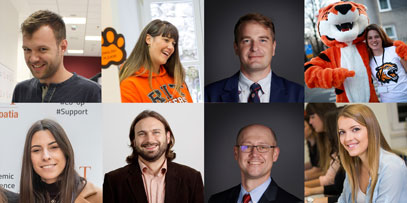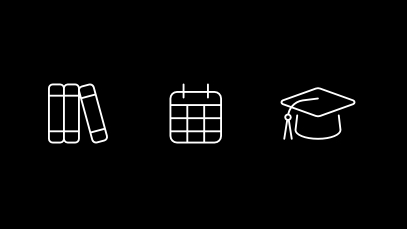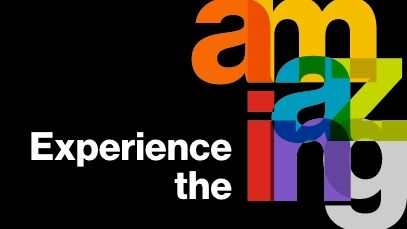An academic rite of passage: Capstone research projects
As a last step before graduation, students in the Web and Mobile Computing and Hospitality and Tourism Management programs go through a well-known academic rite of passage - a final "Capstone" research project that builds on all the knowledge and skills
Real-world IT solutions for international clients
Graduating seniors in RIT Croatia’s Web and Mobile Computing program complete Senior Development Project, a two-semester capstone course taught by Dr. Martin Žagar that challenges students to create real-world IT solutions for international clients. This year, eight student teams from both Dubrovnik and Zagreb campuses created innovative IT solutions or prototypes for companies including renowned Croatian automaker Rimac, Plavi Tim, the IT branch of INA/MOL, and Async Labs, a digital agency, and two US sponsors.
The interdisciplinary projects, which include both theoretical classes and hands-on development, are ideal preparation for a career, explained professor Žagar.
“Students receive a proposal from the client, but that is all the instruction they get,” he said. “It is up to them to meet with the client, collect the needed data from them, develop a timeline, create a budget, and communicate with the client. They need to initiate every step.”
“Communicating with the client is a challenge for some IT students. They are dealing with people, and out of their comfort zone,” he said with a smile.
To create their product, students can choose from among all the different technologies they have learned and studied during their education, but they need to make decisions on their own, as a team, through consensus. In addition, they have to choose a team leader, and assign different roles to each member.
The Rimac team worked on a web solution, mobile app and smart watch app for the company’s hypercar, which will allow the driver to visualize the driving performance through graphs and charts that show top speed, acceleration, temperature and more.
For an American client, the Yorkshire Inn bed and breakfast in Phelps, NY, USA, students created a system to integrate their bookings from multiple sites including Expedia to prevent double bookings.
The INA Plavi Tim project involves creating an inventory management website and mobile application for the entire group of 10.000 employees which allows them to track each tangible asset. The most complex project of all, for Async Labs, involves blockchain solutions for Nonfungible Tokens (NFT) which allows users to buy and sell pixels, as part of a digital image.
“I am very excited about being in the role of the project manager,” said student Aleksa Doda, who worked on creating a website for Aardvark Games, an American board game company, which is organizing an online tournament to promote its new games. “It is helping me to practice and understand some of the principles I could not learn in books. It is helping me to know exactly which career path to follow in the future.” Her colleague, Josip Petar Lozančić, agreed.
“I feel proud of my team and the way we have worked together on the project so far. The most exciting part of the entire project is that we are creating a real product which people are going to be using. We have had many projects throughout the course of our education, but none as important as this one. I think that being able to show future employers something that is out in the world and working will help us immensely with getting started in the job market.”
Hospitality and Tourism Innovation
In the Hospitality and Tourism Management program, graduating students investigate real world issues and problems in the industry, collecting scientific data, and proposing solutions that improve real products and services in the Hospitality Project Planning and Development course.
In this individual, semester-long research project, students begin with a scholarly literature review, reading and studying experts in the field. Then each student collects original data, by conducting surveys or experiments, live observations, or online data analysis. In the end, students offer solutions to current problems, and suggestions for improvements that could benefit local businesses, or even help these students start businesses of their own.
Ora Ivanisević investigated the changing dynamics of luxury hotel concierge services. “Right now, robot or AI concierge services are very trendy,” she said. “But my research points out the importance of the human touch, and the fact that luxury travelers actually want personal contact.”
Vana Mandrapa explored the sustainable fashion movement, an alternative to mass-produced “fast fashion” which harms the environment as well as workers. “Sustainable fashion, or slow fashion, means buying fewer, higher quality items, and keeping them for a longer time,” she explained.
Based on her interest in the tradition of hospitality in Islamic culture, Ajla Karamanaga studied the impact of Fifa 2022 World Cup on the destination image of Qatar, while Alina Sabatin researched the future of tourism in her home country, Ukraine.
“Obviously, the war has devastated the tourism industry in Ukraine, but my country is not the only tourist destination to suffer from disaster. Just look at the way Dubrovnik recovered from the Homeland War. This kind of recovery is known as “phoenix” tourism, and I will interview Ukrainian hospitality professionals to make suggestions for a brighter future when the war ends.” Andrea Pesić investigated attitudes towards the use of push notifications in the job searching process.
“Technology acceptance has become such an interesting topic in the HR world. Many traditional communication tools for job searching have become outdated or inefficient. With the introduction of push notifications and push messages which are perceived as reminders, applicants will be able to find a job much faster. The research that I have conducted has widened my horizons even more. Hopefully, this is my future job.”
At the end of the course, students present their findings in a formal research paper as well as an educational 15-minute presentation, which is open to all RIT Croatia students, faculty, staff, alumni and friends and family members. “The final presentations always make me proud,” said course instructor Rebecca Charry Roje. “It’s wonderful to see our students up there in front of an audience, speaking confidently, with knowledge and insight into their topics, and presenting their work in creative ways that help the audience better understand the world we are living in.”







